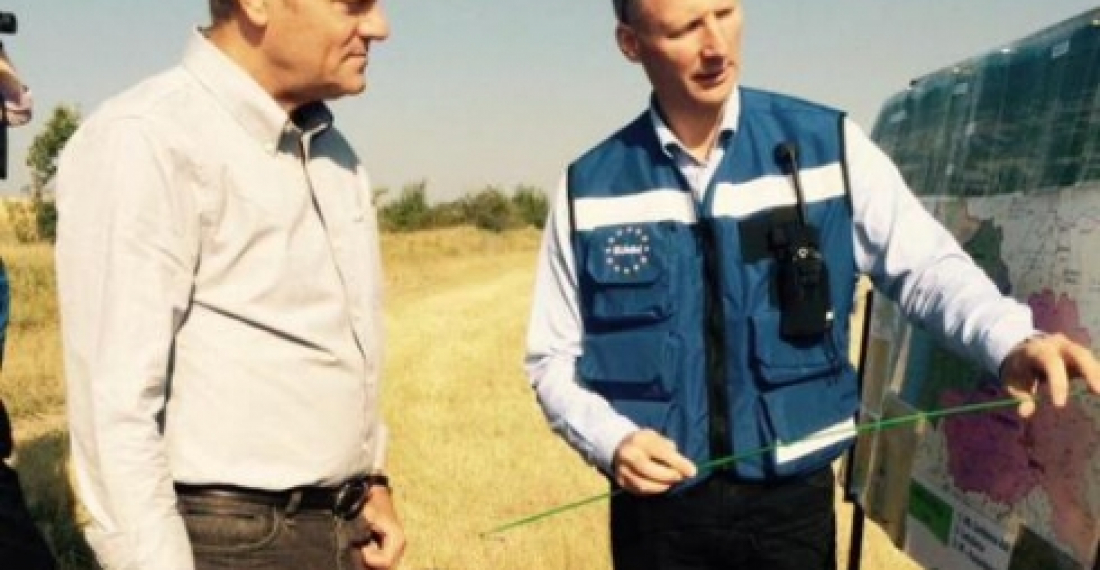"Georgia really matters to us." This was stated by the President of the European Union Council, Donald Tusk after meeting with the Georgian President, Giorgi Marghvelashvili in Tbilisi on Monday. Tusk who is on a tour of the South Caucasus states said that Georgia has defined itself as a close associated partner of the EU and bilateral relations are strong and growing. "Georgia is definitely a front-runner in the Eastern Partnership. This is not flattery. It is a fact", added Tusk.
During his visit to Georgia the EU Council President also visited the administrative boundary with the separatist entity of South Ossetia. Tusk was accompanied by the Head of the EU Monitoring Mission that has been deployed in Georgia following the 2008 conflict with Russia. Speaking earlier Tusk said that the EU continues to support the territorial integrity and sovereignty of Georgia. "We want to lower tensions, engage in dialogue and advance diplomatic efforts towards a solution", he added. In a comment on twitter Tusk described the EUMM as a factor of stability in Georgia.
source: commonspace.eu
photo: EU Council President Donald Tusk, with the head of the EU Monitoring Mission in Georgia at the administratove boundary with the separatist region of South Ossetia on Tuesday, 21 july 2015.







